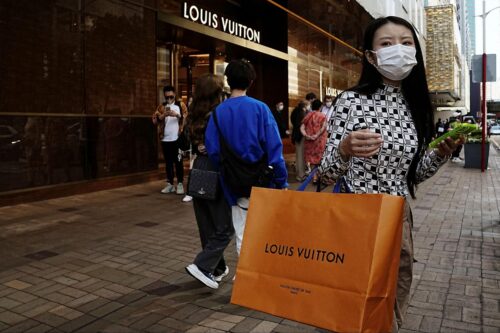China’s hotels are bullish on 2023 after a dreadful 2022
This has been an annus horribilis for China’s hospitality industry. But hotel executives are looking forward to a recovery in 2023 and predict that mid- to high-end chains will prosper as cheaper hotels and one-property operations increasingly go out of business.

On December 7, China’s government announced 10 measures to speed up the easing of COVID zero (including the abolition of mandatory centralized isolation). The following day, the national holiday schedule for 2023 was issued, as COVID curbs around the country were loosened.
On December 13, the internet search volume related to hotels in China increased by nearly seven times compared with the previous day. Some travel agencies reported that the hotel booking volume increased by nearly 50% compared with the previous week, and some said it increased by as much as 100%.
Annus horribilis
This news would have been gratifying to the delegates attending the 21st Century Hotel Industry Summit that took place in Shanghai on the same day. Looking back on 2022, the tone of the event was decidedly somber, as everyone present agreed that this year was a very bad year for China’s hotel industry. According to the latest report released by the China Tourism Academy on December 11, the total number of domestic tourists in China in 2022 was 2.77 billion, a decrease of 14.38% compared with 2021, and total domestic tourism revenue was 2.35 trillion yuan ($337.96 billion), a decrease of 19.5% year-on-year.
But looking forward, the delegates were able to pat themselves on the back as the survivors of what they called the “three-year pandemic,” and now the challenge is to prepare for the post-pandemic world. Or, as one delegate put it, “it’s winter now, but spring is around the corner, and anything will be better than 2022.”
According to Zhāng Rùngāng 张润钢, the secretary-general of the China Tourism Association, the recovery of China’s hotel industry will occur in three stages, starting with a difficult period into early 2023, as there will still be a rising number of COVID infections, then the beginning of a recovery from the spring of 2023, before a comprehensive recovery occurs in the second half of 2023. In essence, Zhang told the industry to cheer up.
No country for cheap hotels
The Shanghai summit was an opportunity for China’s leading hotel executives to reflect on how their industry has changed over the last three years. While everyone agreed that 2022 was a terrible year, there was also some understanding of the key trends that will shape the expected comeback in 2023. Sūn Jiān 孙坚, general manager of Beijing Tourism Group (BTG) 首旅集团, one of China’s largest hotel chains, pointed out that the industry is moving from an era focused on scale and expansion to one focused on branding and consolidation of quality accommodation.
Zhōu Wéi 周维, vice president of Jin Jiang Hotels 锦江酒店, another of China’s largest hotel chains, stated that in the post-pandemic era, the demand for high-end personalized hotels will be a key trend. According to Zhou, Jin Jiang has launched a series of innovative new brands to meet the demand for high-quality post-pandemic hotels. These include Y.tuo 原拓酒店, launched in 2020, described as the first “national tide” (国潮 guócháo) hotel brand in China, and Renjoy Hotel 云居, a mid- to high-end country resort brand.
In the first three quarters of 2022, China’s three largest hotel groups have all systematically closed their lower-end hotels and opened mid- to high-end ones: Jin Jiang closed 307 cheaper hotels and opened 945 new high-end ones; for BTG, the corresponding numbers were 525 closed and 621 opened; and H World Group 华住集团 (the only one of the three groups that is privately owned) closed 430 and opened 1,000.
The trend of the gradual receding of cheaper hotels in China was already evident before COVID, and was likely further exacerbated by the pandemic: The number of low-end hotels had started to decline from 2017, while mid- to high-end hotels were growing by 15% annually.
From the start of 2019 to November 2022, the Qichacha 企查查 business database removed 381,000 hotel-related companies from its listings and added 275,000 new ones. According to data by Alibaba’s 阿里巴巴集团 auction platform, a total of 96 hotels worth more than 100 million yuan ($14.38 million) were put up for auction in 2022, as well as more than 500 hotels worth less than 100 million yuan. Yet of the latter 500, the takers have been few and far between: As of the end of November, only 30 have successfully auctioned their real estate, equity, or debt.
From August 2021 to December 2022, the number of four-star and above hotels in Shanghai decreased by 202, while three-star and below hotels decreased by 3,500. In Shenzhen, the corresponding numbers were 115 and 1,700. The weight of hotel closures has fallen disproportionately on the largest cities. Over the same period, Guangzhou lost 4,540 hotels, while Chongqing and Xi’an each lost nearly 4,000 hotels. Second-tier cities like Harbin, Shenyang, Dalian, and Changchun have had much fewer hotel closures, and they still have a lot fewer hotels than the largest cities. (Beijing has 6,902 hotels, for example, while Harbin has 2,264.)
The hotel closures were also predominantly concentrated among individual hotels, while the large hotel chains like Jin Jiang and BTG actually increased their layout: According to the China Hospitality Association, from 2020 to 2021, the total number of hotel rooms in China decreased by 2.3 million, but the number of chain hotel rooms increased by 166,000.
China news, weekly.
Sign up for The China Project’s weekly newsletter, our free roundup of the most important China stories.
Winning hearts and minds
As outlined above, cheaper hotels were already in decline before the advent of COVID. One reason is that younger people are now becoming the main consumers in the industry, and they expect a higher-quality, personalized experience; old-fashioned low- to mid-end hotels are simply no longer in fashion.
Other reasons are much more closely tied to COVID: The falloff in international travel over the last three years has redirected China’s high-net-worth consumer groups into the domestic market. Individual hotels have also been poorly prepared to deal with years of lockdowns, while the large hotel chains had the resources to survive the long COVID winter.
Now that spring is finally in the air, one hotel executive who attended the summit in Shanghai this week called for China’s hotel industry to pursue high-quality development but also to remember the most basic concept of hotel management: the need to capture and retain “the hearts” of guests. The COVID winter may have been dreadful, the executive said, but the post-COVID recovery will be about returning to the four most basic elements of the hotel industry: a good night’s sleep, a good breakfast, a good internet connection, and a good bath. In the post-COVID China, you will best be able to enjoy these pleasures in one of the large chain hotels.






